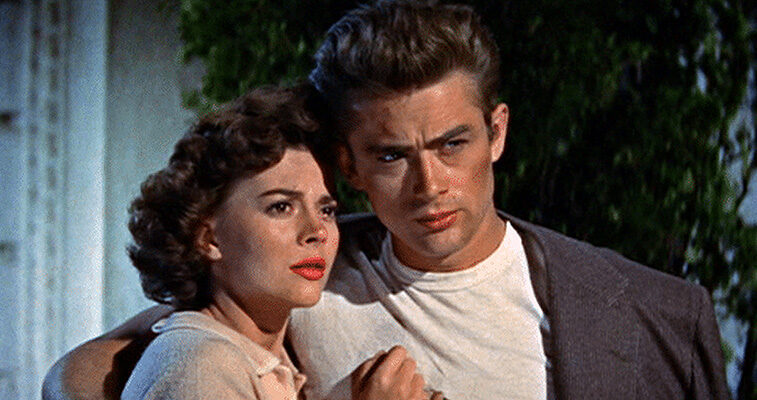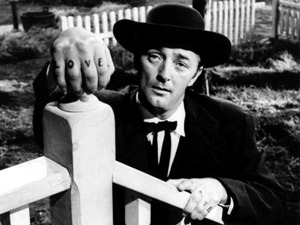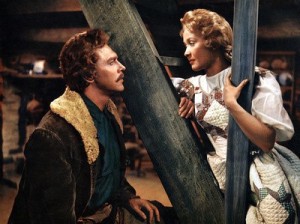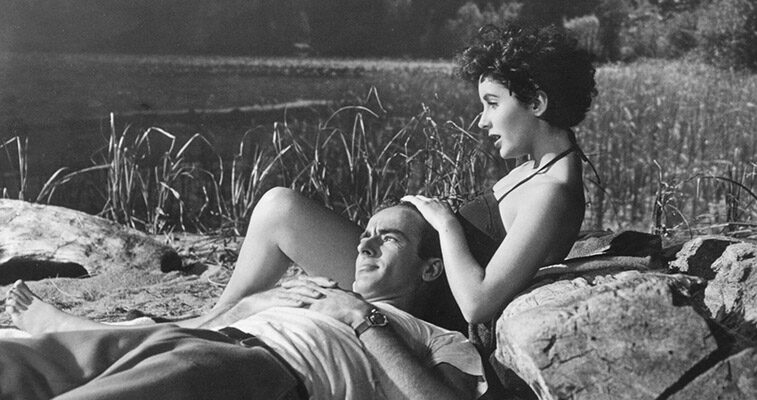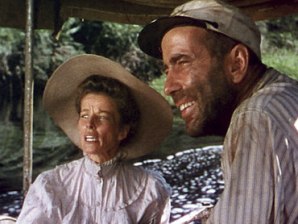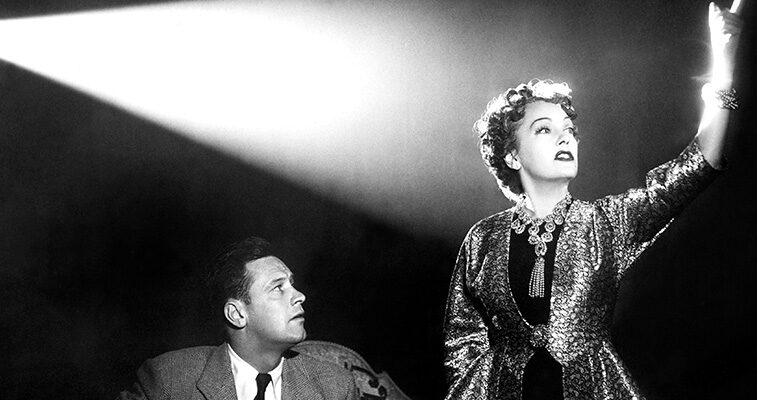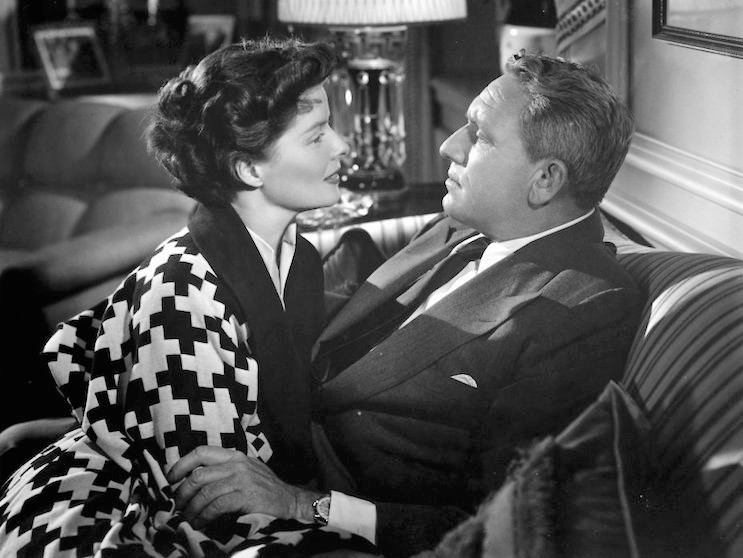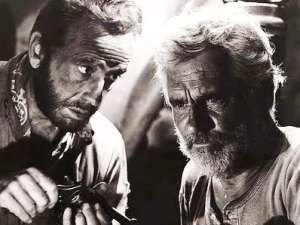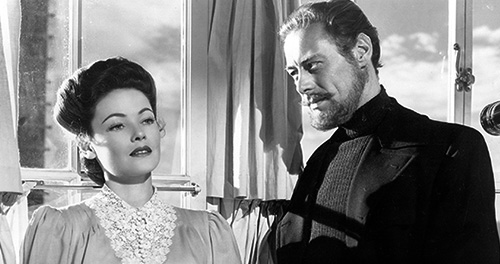The Night of the Hunter (1955)
[10]
Two small children run for their lives from a murderous preacher in the only film actor Charles Laughton ever directed. The Night of the Hunter is a unique blend — part fable and part thriller, both pastoral and horrific, a beguiling mixture of qualities that usually mark the work of an amateur… or a genius. Laughton is as precise and purposeful as Orson Wells (even using Well’s cinematographer from The Magnificent Ambersons), but there’s also a naive, experimental quality to the film, in the way he mixes realism with German expressionism, and solemnity with odd moments of Tex Avery-style comedy.
Seven Brides for Seven Brothers (1954)
[9]
It could just be my hillbilly roots, but I get a kick out of this corny but highly entertaining romp from the director of Singin’ in the Rain. A kind-hearted woman (Jane Powell) impulsively marries a mountain man (the booming Howard Keel) but gets more than she bargained for when he introduces his six brothers in the squalor of their remote farm house. Powell is the heart of the movie. Making the best of it, she tries to civilize Keel’s six lonely brothers to improve their chances of finding their own brides.
A Place in the Sun (1951)
The African Queen (1951)
[9]
Charm can take a movie a long, long way. With Katharine Hepburn and Humphrey Bogart in their only film together, The African Queen goes the distance. She’s Rosie, the prudish widow of a missionary, and he’s Charlie, the rough-around-the-edges steamboat captain. Director John Huston puts them in a small boat together and lets the sparks fly. We need only a simple plot to drive this movie forward — Charlie and Rosie are determined to sink a German gunship that blocks the mouth of the river, so they make their own torpedoes and head straight into danger. The story gives ample room for the characters to quarrel and, yes, fall in love.
Sunset Boulevard (1950)
All About Eve (1950)
Adam’s Rib (1949)
The Treasure of the Sierra Madre (1948)
[9]
Three desperate men scrape together everything they can muster to go prospecting for gold and discover not just riches, but the destructive greed that comes with them. This is one of John Huston’s finest works, a male bonding adventure that doubles as a dark morality tale. Humphrey Bogart is terrific in the leading role, especially when his character begins turning into the monster of the piece. Outside of film noir, you rarely see protagonists like Bogart’s go evil without the film losing favor with the audience. Maybe we still feel a little sympathy for him because we see his dark potential in ourselves?

